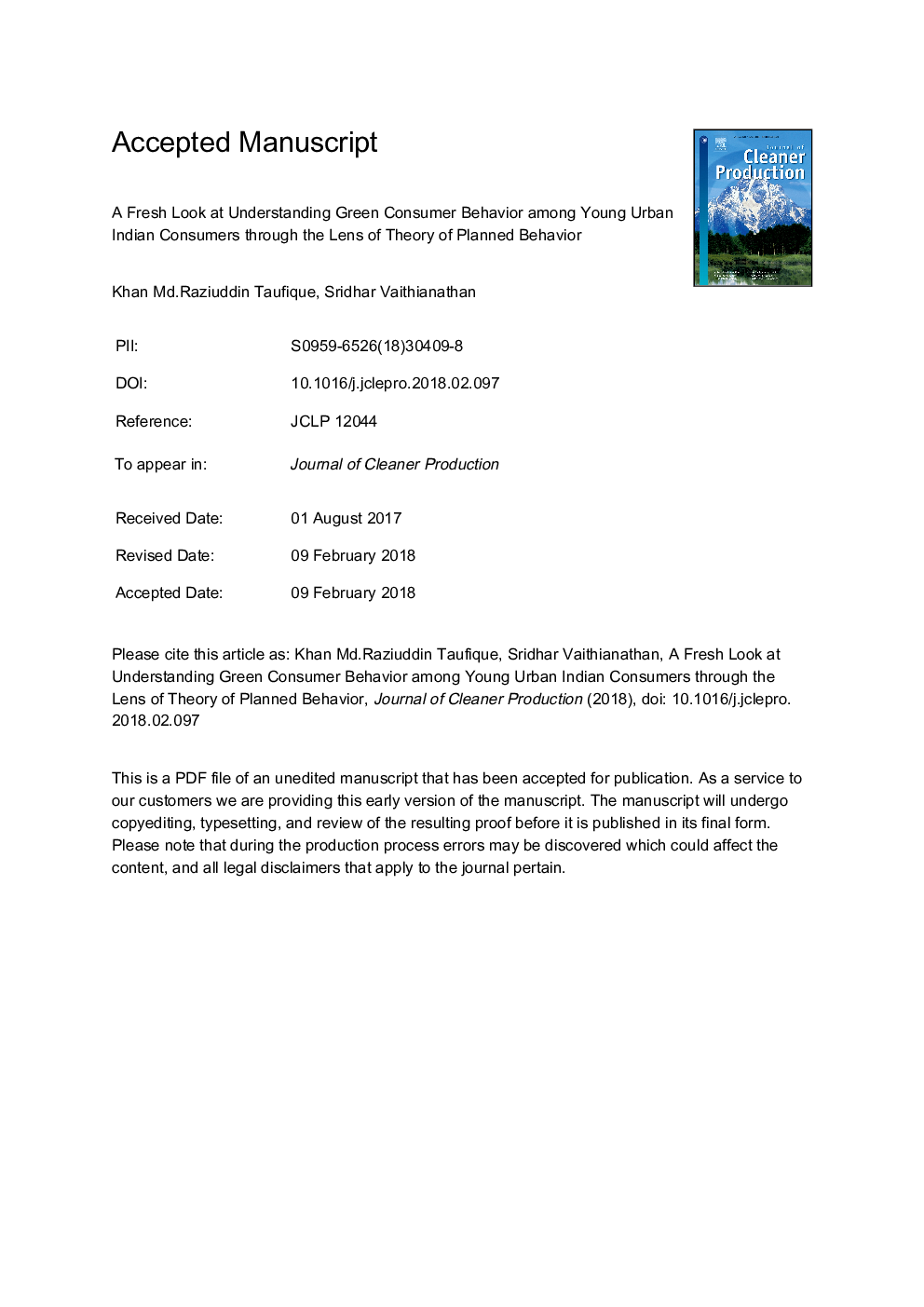| Article ID | Journal | Published Year | Pages | File Type |
|---|---|---|---|---|
| 8096930 | Journal of Cleaner Production | 2018 | 32 Pages |
Abstract
Rapid economic growth and resulting overconsumption have accelerated environmental deterioration worldwide, prompting escalated consumption-related environmental concerns. This study attempts to explore the antecedents of ecologically conscious consumer behavior (ECCB) among young urban consumers in India - an emerging market experiencing rapid economic growth with increased urbanization and changes in consumption patterns that are contributing to environmental hazard. The empirical study including a literature review uses Theory of Planned Behavior integrating environmental attitudes, subjective norms, perceived consumer effectiveness, and behavioral intention in the model to investigate their influence on ECCB. The results suggest that attitudes and perceived consumer effectiveness both have a significant direct and indirect positive influence on ECCB. In addition, it would appear that the subjective norm, a measure of social demand, does not have any significant influence on behavioral intention leading to ECCB - contrary to established findings in a collective society considered in this study. This paper concludes with policy implications of the findings for marketers and policymakers, as well as potential directions for further research.
Related Topics
Physical Sciences and Engineering
Energy
Renewable Energy, Sustainability and the Environment
Authors
Khan Md.Raziuddin Taufique, Sridhar Vaithianathan,
